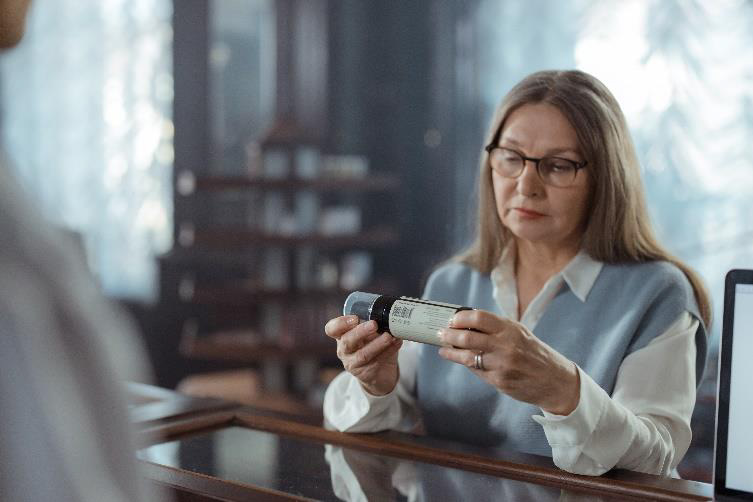


Joseph R. Anticaglia MD
Medical Advisory Board
Melissa, a three year old, has a history or recurrent ear infections. It’s the weekend, it’s one o’clock in the morning and Melissa is irritable, tugging at her right ear and has a slight temperature. This has been the prelude to a spike of 103 F temperature, crying and piercing screams due to her painful ear infections. Her mother has left over liquid antibiotic medication that the child’s pediatrician prescribed six weeks ago for her ear infections. Her mother thinks it over, “Should I give the baby the antibiotic. Is it safe to do so?”
Harry, an iron worker, has a headache, goes to the medicine cabinet in the bathroom looking for aspirins. He picks up the bottle of aspirin and reads that the expiration date was five months ago. Should he take two aspirins?

In 1972, the Food and Drug administration required that all commercially available medications in the U. S. must have a unique code and be listed with the FDA.
Five years later, in 1979, the FDA enacted a law that required drug manufacturers, foreign or domestic, to clearly print the expiration date on the label of medications.
Are the drug expiration dates on labels fact or fiction? Are there medications you can safely give to your child after the expiration date? Is it a ploy, as some cynics have suggested, by Big Pharma to increase profits by increasing turnover? Others opine about the terrible cost of disposing of useful medications with a questionable expiration date.
Expiration dates on drug labels refer to a guarantee by the FDA and pharmaceutical companies that during the period listed on the label, particular medication will retain its quality, potency and effectiveness. Expiration dates exist on drug prescriptions, over the counter (OTC) products vitamin and mineral supplements, as well as on dietary, and herbal preparations.
Some have characterized expiration dates as misnomers or myths since many drugs can safely be used beyond the final day listed on the label while maintaining their purity, strength, stability and efficacy. Lee Cantrell, in a 2012 JAMA Internal Medicine research letter wrote, “Ongoing studies show that many medications retain their potency years after their initial labeled expiration dates.’
Cantrell found capsules and tablets in unopened containers in a retail pharmacy which had expired 18 to 40 years prior to his discovery. His analysis, with the help of other colleagues, demonstrated that: “Twelve of the 14 drug components tested were present in concentration at least 90% of the label amounts, the generally recognized minimum acceptable potency.” In other words, 86% of the medications under analysis retained their quality and long-term stability.
No one disputes the notion we want our medications to be safe and effective. However, an enormous number of drugs have been wastefully disposed of because they have gone beyond their technical expiration dates. The military, hospitals, pharmacies and consumers have discarded useful medications because of the drug’s expiry date, costing billions of dollars needlessly
In 1986, the Air Force asked the FDA if it were feasible to extend the expiration dates of certain drugs. They wanted to save on drug replacement costs and have drugs available that might be in short supply during emergencies. In response, the Shelf-Life Extension Program (SLEP) was created by the FDA, and the Department of Defense (DOD).
Each year SLEP selects drugs from the military stockpile based on their value and expiration date to determine if their end dates could be extended. The program has identified for decades that a significant percentage of medications has a shelf-life years beyond those listed on the container labels. The U. S. government (DOD, Veterans Administration, Health, and Human Services) have utilized these findings at a cost saving of billions of dollars.
Drug wastage is not limited to the government. Nursing homes, hospitals, consumers, pharmacies, in and out of the hospitals, throw away billions of dollars each year. Marshall Allen of Pro Publica reported that hospitals get rid of eight hundred million dollars’ worth of unused or technically outdated medications.
Research has demonstrated that most medications, especially tablets and capsules are safe to take after their expiration date. Yet, certain drugs are unsafe after their expiration date, which include liquid antibiotics used for infections, nitroglycerin for angina and insulin used by diabetics to control blood sugar.
Many remember outdated COVID-19 vaccines being discarded after their expiration date. The antibiotic tetracycline, injectable drugs (EpiPen), and medications that are crumbly or powdery are not safe to use. Your doctor and pharmacist can answer many of the questions you may have.
Pharmaceutical companies do a good job in manufacturing medicines that are safe, stable and effective. It’s up to us to store the drug in a dark cool place, use it properly and watch out for its expiration date.
This article is intended solely as a learning experience. Please consult your physician for diagnostic and treatment options.